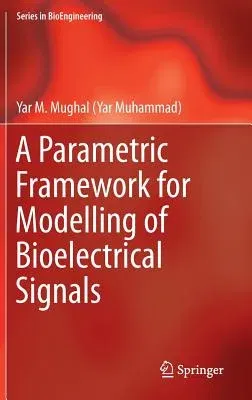Yar M Mughal
(Author)A Parametric Framework for Modelling of Bioelectrical Signals (2016)Hardcover - 2016, 13 January 2016

Qty
1
Turbo
Ships in 2 - 3 days
In Stock
Free Delivery
Cash on Delivery
15 Days
Free Returns
Secure Checkout

Part of Series
Bioengineering
Part of Series
Series in Bioengineering
Print Length
81 pages
Language
English
Publisher
Springer
Date Published
13 Jan 2016
ISBN-10
9812879684
ISBN-13
9789812879684
Description
Product Details
Author:
Book Edition:
2016
Book Format:
Hardcover
Country of Origin:
NL
Date Published:
13 January 2016
Dimensions:
23.39 x
15.6 x
0.79 cm
ISBN-10:
9812879684
ISBN-13:
9789812879684
Language:
English
Location:
Singapore
Pages:
81
Publisher:
Weight:
322.05 gm